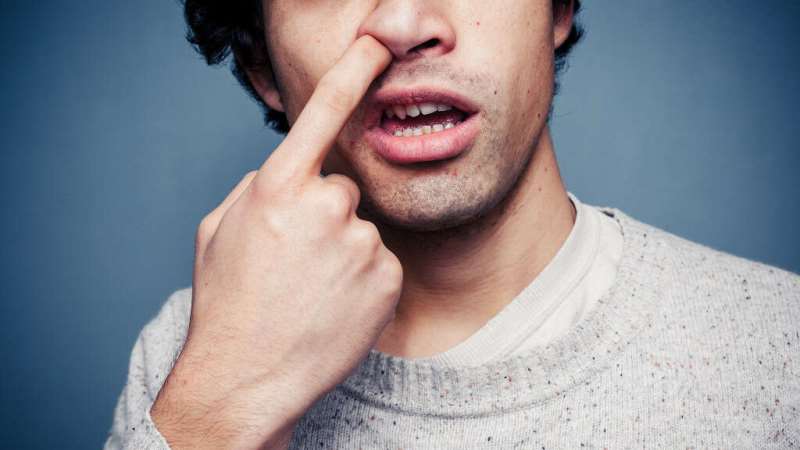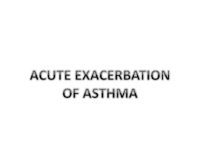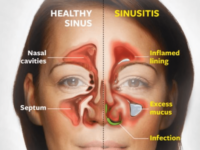Hey there, nosebleed sufferers and clumsy folks! Welcome to our blog post all about treating and preventing those pesky nosebleeds and those unsightly bruises. We’ve all been there – whether it’s accidentally bumping into a table corner or just waking up to find our pillow covered in blood. Nosebleeds and bruising can be quite a nuisance, but fear not! We’ve got you covered. In this post, we’ll dive into the causes of nosebleeds and bruises, along with some handy tips and tricks to help you manage and prevent them from happening in the future. So, grab a cuppa and let’s get started on this nosebleed and bruising journey!
Introduction to Nose Bleeds and Bruising
Nose bleeds and bruising are two common occurrences that many people experience from time to time. While they are often harmless and resolve on their own, they can become a cause for concern if they happen frequently or if the bleeding is excessive. Nose bleeds, or epistaxis, can happen due to various reasons such as dry air, nasal trauma, or underlying medical conditions. Similarly, bruising occurs when small blood vessels underneath the skin break, usually as a result of injury or impact. Although occasional nose bleeds and bruises are typically not a cause for alarm, it is essential to pay attention to any changes in frequency or severity. If these symptoms persist or become more severe, seeking medical advice is advisable to ensure proper evaluation and diagnosis.
Nose bleeds and bruising are common occurrences that can be caused by a variety of factors. Nose bleeds happen when the fragile blood vessels in the nose become damaged and start to bleed. This can be due to dry air, nose picking, or even high blood pressure. On the other hand, bruising takes place when the tiny blood vessels underneath the skin rupture, resulting in a distinct discoloration or black and blue mark. While nose bleeds and bruising can be inconvenient and sometimes alarming, they are often harmless and tend to resolve on their own. However, if these issues persist or become recurrent, it is advisable to seek medical attention for further evaluation and appropriate treatment.
Thereafter, having a thorough understanding of what triggers nose bleeds and bruising, along with the appropriate means to tend to these injuries, is invaluable for identifying any underlying concerns that may arise and putting one’s worries to rest. Knowledge about the causes of these occurrences empowers individuals to discern between harmless incidents and situations that necessitate immediate medical attention. By equipping oneself with this understanding, individuals can confidently address nose bleeds and bruising, knowing when it is appropriate to seek professional help. Overall, being well-informed about these matters enables individuals to be proactive in self-care and ensures peace of mind in the face of potential health complications.
Causes of Nose Bleeds and Bruising
Nose bleeds and bruising can be quite distressing, but fortunately, they can be caused by a variety of factors. These include physical trauma, such as accidents or injuries to the face, which can result in nose bleeds and bruising. Additionally, allergies can play a role in triggering these symptoms, as the body’s immune response can lead to increased blood flow and fragility of the blood vessels in the nose. Certain medical conditions like high blood pressure or blood clotting disorders can also contribute to nose bleeds and bruising. Surprisingly, the use of certain medications can even be a culprit, as they may affect blood clotting or cause blood vessels to become more fragile. It is crucial to identify the underlying cause of nose bleeds and bruising to determine the appropriate treatment. However, it is important not to panic, as often these symptoms can be managed effectively once the root cause has been determined.
Nosebleeds and bruising can be worrisome, but understanding the possible causes can help alleviate concern. One potential culprit for nosebleeds is allergic reactions, which may trigger bleeding in the nose. Furthermore, high blood pressure or a sinus infection can also lead to nosebleeds. It is important to note that certain medications, like aspirin or warfarin, which are blood thinners, may increase the likelihood of experiencing nosebleeds and bruising. While nosebleeds and bruising can occur for various reasons, knowing the potential factors involved can aid in managing these conditions with a cautious approach.
Finally, it is crucial to keep in mind that nosebleeds and bruising are common occurrences in children, mainly attributed to their heightened activity levels and increased likelihood of minor accidents. As parents or caregivers of young children, it is imperative to remain vigilant and watchful for any potential signs of nosebleeds or bruising. By staying attentive and proactive, we can ensure the well-being and safety of our little ones. Regularly checking for any indicators will enable us to promptly address any concerns and seek necessary medical attention if required. Remember, being aware of these possibilities empowers us to provide the best care and safeguard our children from potential harm.
Symptoms of Nose Bleeds and Bruising
When it comes to nose bleeds and bruising, it’s important to recognize the symptoms and understand their significance. One common symptom to watch out for is bleeding from the nostrils. This can be a frightening experience, especially if it occurs unexpectedly or frequently. Another telltale sign is a dripping or running nose, which may seem like a mere annoyance but can actually be a manifestation of a larger issue. Additionally, individuals experiencing nose bleeds may also feel a persistent wetness in the nose area, which can create discomfort and concern. These symptoms are key indicators that should not be ignored, as they may signify underlying health conditions or potential injuries. It is essential to seek medical attention if these symptoms persist or worsen, as proper diagnosis and treatment are crucial for a healthy recovery.
Nosebleeds can sometimes be accompanied by bruising around the nose or eyes. This occurrence, although not always present, can be a cause for concern. The bruising can vary in severity, ranging from mild discoloration to large, dark bruises that are tender to the touch. While the presence of bruising after a nosebleed may be alarming, it is important to keep in mind that not all nosebleeds result in bruising. However, if bruising does occur, it is advisable to seek medical attention to ensure there are no underlying issues causing the nosebleed or the subsequent bruising. By consulting a healthcare professional, they can provide a proper evaluation and offer guidance on the necessary steps for treatment or management. Remember, while bruising is not uncommon after a nosebleed, it is always best to err on the side of caution and have any concerning symptoms thoroughly assessed by a medical expert.
Furthermore, it is crucial to seek medical attention if you encounter recurring or intense nosebleeds as this could be an indication of more serious underlying health issues, such as anemia or high blood pressure. These conditions, if left untreated, can have detrimental effects on your overall well-being. By visiting your doctor and discussing your symptoms, you can receive a proper diagnosis and appropriate treatment, which may involve addressing the root cause of the nose bleed and bruising. Remember, early intervention and regular check-ups are essential in maintaining optimum health and preventing any potential complications that nosebleeds and bruising may signify.
Treating Nose Bleeds and Bruising
When it comes to nose bleeds and bruising, it is crucial to know how to effectively control the bleeding. The first step in treating a nose bleed is to remain calm. This ensures that you are able to think clearly and act quickly. One important technique to stop the bleeding is by applying gentle but firm pressure to the nostrils for five to ten minutes. This helps to constrict the blood vessels and reduce the flow of blood. By staying composed and using this simple method, you can successfully manage nose bleeds and prevent further bruising.
If experiencing a nose bleed and bruising, it is crucial to take immediate action. If the bleeding persists despite initial measures, it is imperative to seek medical attention promptly. This could indicate a more serious underlying issue that requires professional assessment and treatment. In certain cases, more aggressive interventions such as cautery or nasal packing may be necessary to halt the bleeding completely. These methods can effectively address the cause of the nosebleed, providing relief and preventing further complications. Prioritizing timely medical care ensures that any potential complications related to nose bleeds and bruising can be effectively managed, promoting optimal healing and wellbeing.
Also, when it comes to nosebleeds and bruising, it is vital to remember that prevention is key. Avoiding situations that could lead to accidents or injury, such as wearing protective gear during sports activities or being cautious around sharp objects, can significantly reduce the risk of experiencing nosebleeds and bruising. Additionally, implementing safety measures in your daily routine, such as installing handrails or non-slip mats in your home, can help prevent falls and subsequent injuries. By being proactive and taking necessary precautions, you can minimize the chances of nosebleeds and bruises, allowing you to lead a healthier and more worry-free life.
Home Remedies for Nose Bleeds and Bruising
Nosebleeds and bruising are common occurrences that can be caused by various factors, ranging from minor injuries to more severe underlying health conditions. When it comes to nosebleeds, they often result from the delicate blood vessels in the nose becoming irritated or damaged. This can happen due to dry air, excessive nose picking, or even high blood pressure. On the other hand, bruising arises when tiny blood vessels beneath the skin are broken, leading to discoloration and tenderness. While bruising is typically caused by physical trauma, such as a bump or a fall, certain medical conditions like blood disorders or medication side effects can also contribute to its appearance. Both nosebleeds and bruising serve as indicators of potential health concerns, so it is important to monitor their frequency and severity, seeking medical attention if deemed necessary.
When it comes to dealing with nose bleeds and bruising, it is essential to prioritize remedies that specifically target inflammation reduction, maintaining cleanliness in the affected area, and employing cold compresses or ice packs to effectively diminish swelling. These home remedies play a crucial role in alleviating discomfort and promoting healing. By addressing the underlying issue of inflammation, individuals can effectively manage nose bleeds and bruising, allowing for a smoother recovery process. Additionally, keeping the affected area clean helps prevent infection and further complications. Lastly, applying cold compresses or ice packs aids in reducing swelling, providing immediate relief and encouraging a speedy recovery. By focusing on these key aspects in addressing nose bleeds and bruising at home, individuals can effectively manage their symptoms and restore their well-being in a natural and comforting manner.
When addressing nosebleeds and bruising, it is crucial to be mindful of certain precautions. For instance, if one opts for a cold compress to alleviate a nosebleed, it is imperative to ensure that the compress is kept away from the nostrils. By adhering to this advice, individuals can effectively avoid additional discomforts that may arise from direct contact between the compress and the affected area. This precautionary measure contributes significantly to the overall management and relief of nosebleeds and bruising, safeguarding against further complications and promoting a more comfortable recovery process.
Thereafter, when it comes to nose bleeds and bruising, it becomes evident that applying pressure is not only beneficial for nosebleeds but also for bruises. By applying pressure to a bruise, one can effectively reduce swelling, preventing the bruise from worsening or spreading. This simple yet effective technique allows individuals to take control of their body’s response to injury, promoting a faster and more efficient healing process. Taking this proactive approach not only aids in reducing discomfort and pain but also empowers individuals to actively participate in their own recovery. Keeping pressure on any bruise is one of the essential steps to take in managing and mitigating the effects of bruising, ensuring a speedy return to normalcy.
Preventing Recurrence of Nose Bleeds and Bruising
When it comes to preventing recurrent nose bleeds and bruising, practicing good hygiene habits is key. One of the most effective ways to do this is by regularly washing your hands with warm water and soap. This simple act can help eliminate harmful germs and bacteria that could potentially lead to nose bleeds or bruising. Additionally, it is crucial to avoid sharing personal items like towels or clothing with others. By doing so, you can minimize the risk of infection or irritation that might contribute to nose bleeds or bruising. Taking these precautions not only promotes better overall health but also ensures that you maintain a safe and hygienically sound environment.
When dealing with nose bleeds and bruising, it is crucial to prioritize nasal passage moisturization. This can be achieved by using a saline mist spray or employing a humidifier at home to combat dryness. The application of a protective ointment or cream around the nose is also advised, serving to prevent recurrent nose bleeds and minimize bruising. By taking these precautions and incorporating these essential practices into your routine, you can alleviate discomfort and promote healing, ensuring a healthier and more comfortable nasal environment.
Finally, it is crucial to prioritize our well-being and take necessary measures to safeguard ourselves against any physical harm, particularly when it comes to preventing nose bleeds and bruising. By acknowledging the potential risks associated with blunt force blows or engaging in high-impact sports activities, we can make informed decisions that prioritize our safety. Wearing a helmet while participating in contact sports significantly reduces the likelihood of head trauma, subsequently minimizing the chances of experiencing nose bleeds and bruising. By adopting these preventive measures, we can actively protect ourselves from the potential consequences of physical trauma and uphold our overall health and well-being.
When to Call a Doctor for Nose Bleeds and Bruising
When it comes to nosebleeds and bruising, it is crucial to keep an eye on any persistent bleeding. If you find yourself with a nosebleed that shows no signs of stopping even after applying pressure and trying other home remedies for a solid 10 minutes, it is highly recommended to reach out to your doctor. They are the best resource to assess the severity of your condition and provide the appropriate guidance or treatment. Remember, your health and well-being should never be taken lightly, so don’t hesitate to seek professional medical advice when necessary.
If you have been experiencing nose bleeds along with bruising on your face or body, it is crucial to reach out to your doctor promptly. Nose bleeds are common and usually harmless, often occurring due to dry air or minor irritation. However, when accompanied by bruising that is progressively growing in size or intensity, it may signify a more severe underlying issue. Bruising that spreads can be an indication of a potential medical concern that requires immediate attention. Therefore, it is vital not to ignore these symptoms and to consult with your doctor for a thorough examination.
Bruising and nosebleeds are common occurrences that often result from minor accidents or injuries. However, it is crucial to be aware that these seemingly benign symptoms can also be indicative of other underlying health issues related to nose bleeds and bruising. In some cases, they may be early warning signs of serious conditions such
as certain types of cancer or blood clotting disorders. Therefore, if these symptoms persist or worsen, it is important to seek medical attention promptly. By doing so, professionals can thoroughly evaluate the situation and provide accurate diagnoses to ensure early detection and appropriate treatment if necessary. Remember, proactive and timely action can make a significant difference in maintaining overall well-being when it comes to nosebleeds and bruising.
Thereafter, it is essential to maintain a vigilant eye on any alterations in the severity and recurrence of these symptoms, enabling a precise and accurate report during your conversation with the medical practitioner when scheduling an appointment. By diligently keeping track of your nosebleeds and bruising episodes, you take an active role in your healthcare, ensuring that the doctor receives all the necessary information to make a thorough evaluation. Effective communication with your healthcare provider about the intensity and frequency of these symptoms will enable them to provide you with the best possible advice and treatment options to alleviate your concerns. Remember, your health is of utmost importance, and by being proactive and attentive, you are taking a crucial step towards addressing these nosebleeds and bruising effectively.
Common Treatment Options for Nose Bleeds and Bruising
Nose bleeds and bruising often require immediate attention, and a common and effective treatment option is the application of direct pressure to the affected area. This simple yet crucial method aids in stopping the bleeding and reducing any accompanying swelling. Whether the nose bleed is a result of trauma or underlying medical conditions, applying direct pressure can help form clots and prevent further blood loss, ultimately promoting faster healing. Similarly, when it comes to bruising, this technique can assist in reducing the severity and duration of discoloration by preventing excessive blood flow to the affected area. Overall, this approach to addressing nose bleeds and bruising proves to be an essential first step in managing these common health concerns, offering a practical and straightforward solution to alleviate discomfort.
When experiencing a nose bleed or bruising, there are various treatment options available to provide relief and promote healing. One effective technique is icing the affected area, which helps to reduce swelling and constrict blood vessels. By applying a cold compress, the inflammation can be minimized, providing comfort and aiding in the healing process. Another helpful method is elevating the head, as this can assist in reducing blood flow to the affected area and alleviating pressure. These techniques, when used in conjunction with direct pressure, offer maximum relief. By applying pressure to the affected nose or bruised area, the bleeding can be controlled and the healing process can be accelerated. These treatment options are essential to address nose bleeds and bruising effectively, ensuring a speedy recovery and minimizing discomfort.
When it comes to nosebleeds and bruising, there are certain instances where cauterization may become necessary to control bleeding. Nosebleeds can be quite bothersome and, in some cases, difficult to stop. However, in these situations, the process of cauterization can be employed to effectively seal off the blood vessel responsible for the bleeding. This can be done through the application of a chemical or electric current, which essentially stops the bleeding altogether. By exploring such techniques, individuals experiencing nosebleeds and bruising can find relief and a way to manage these frustrating and sometimes baffling occurrences.
Besides using antiseptics such as hydrogen peroxide or apple cider vinegar to cleanse the affected area and reduce inflammation, there are additional measures that can be taken to address nose bleeds and bruising. It is important to remember that prevention is key when it comes to these issues. Avoiding activities that may cause trauma to the nose, such as rough sports or accidental bumps, can significantly reduce the likelihood of experiencing nose bleeds and bruising. Additionally, maintaining a healthy lifestyle and consuming a balanced diet rich in vitamins and minerals can contribute to overall skin health and resilience, making it less prone to bruising. Lastly, protecting the nose with appropriate gear, such as helmets or guards, can provide an extra layer of defense against injuries. By adopting these preventive measures alongside the use of antiseptics, individuals can effectively address nose bleeds and bruising while promoting healing and preventing infection.
Nose bleeds and bruising are frequently encountered issues that can stem from a wide range of causes, encompassing both minor incidents like accidental collisions or falls, as well as more severe underlying medical conditions. These distressing occurrences can arise due to various factors, and it is essential to be aware of them in order to address them appropriately. While nose bleeds can often be attributed to dry air, allergies, or nasal trauma, bruising can be a consequence of injury, certain medications, or even a symptom of an underlying bleeding disorder. It is crucial not to disregard or trivialize these symptoms, as they can sometimes indicate more serious health concerns. If persistent or accompanied by other unusual symptoms, seeking medical advice should be a priority to ensure appropriate diagnosis and treatment. By understanding the potential causes and taking necessary precautions, we can strive to prevent nose bleeds and bruising, thus maintaining our overall well-being.
When experiencing a nose bleed or bruising, it is crucial to pay attention to their severity. These symptoms can serve as warning signs of an underlying health condition or injury that demands medical attention. By closely monitoring the nose bleed and bruising, individuals can gain valuable insights into their overall well-being. Both occurrences should not be taken lightly, as they may signify more than just temporary inconvenience. Rather than dismissing them as insignificant, it is wise to approach these symptoms with elevated concern. Seeking medical advice and intervention in such cases can provide a deeper understanding of the root cause, enabling timely and appropriate treatment. By acknowledging the importance of these symptoms and taking them seriously, individuals can prioritize their health and well-being effectively.
Meanwhile, it is vital to remain vigilant and observant when it comes to nose bleeds and bruising, paying close attention to any patterns that may emerge. By keeping track of the frequency of these occurrences and noting any accompanying symptoms, individuals can take proactive measures to address potential medical issues before they escalate. Recognizing the significance of these patterns can help ensure that any underlying health concerns are detected early on, ultimately leading to less invasive interventions and a better overall prognosis. Therefore, it is wise to stay mindful of any changes in nose bleeds or bruising, promptly seeking medical advice if necessary, as this proactive approach allows for timely intervention and appropriate management of any potential complications.
Read also: Bruising in Corner of Eye Near Nose
In conclusion, nosebleeds and bruises may seem like inevitable inconveniences, but with the right knowledge and preventative measures, you can significantly reduce their occurrence and manage them effectively. By understanding the underlying causes of nosebleeds and bruising, such as dry air or certain medications, you can tailor your prevention strategies accordingly. Incorporating tips like using a humidifier, applying ice packs, or practicing self-care techniques can go a long way in preventing these nuisances. Remember, if you experience frequent or severe nosebleeds or bruising without any apparent cause, it is essential to consult a healthcare professional for a proper diagnosis and treatment plan. So take care of yourself and bid farewell to those pesky nosebleeds and bruises!







